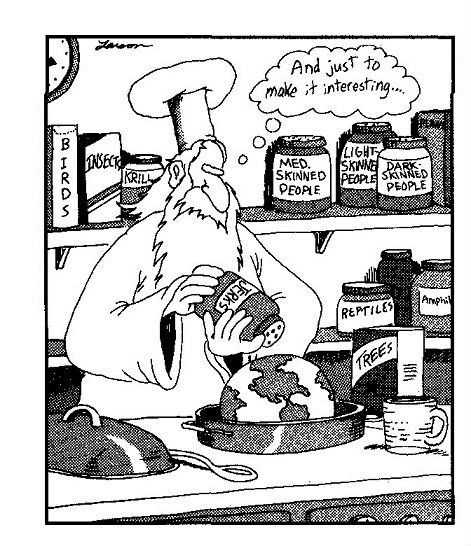Certainly came across that way in Catholic school. There's some prayer or such that goes something like "You know what I'll do before I do it, what I'll pray before I pray it" ... something like that. Anywho, I think it's pretty common view at least in American Christianity that God is infinite in all directions he possesses. All the prophecies, and the very existence of the book of Revelations would seem to indicate this as well. I'd say it's a safe assumption. Can't speak for Judaism.xbl0x180 wrote:Then it must be established that the Judeo-Christian God is not all-knowing: God doesn't know the future, God doesn't know how his creations were intended to work, etc. Is this an idea widely accepted by all Judeo-Christian sectsEd Oscuro wrote:It doesn't work like that if there is free will (which seems to be an alternate way of saying "God isn't omniscient after all," but few people want to admit this).
Omniscience being incompatible with free will always gave me pause too (chief intellectual reason I'm an atheist). Milton makes a valiant attempt at reconciling them with the lines:
...So will fall
He and his faithless progeny: whose fault?
Whose but his own? ingrate, he had of me
All he could have; I made him just and right,
Sufficient to have stood, though free to fall.
The "strength to stand but freedom to fall" idea may not get rid of the problem, but it's good food for thought. I think the idea is something like God knowing what choices you will make when you are created, but they are still your choices, made by you in an abstract sense, perhaps, before, or during, your creation.
Milton was a monist, meaning that he believed everything that has or will ever exist (Chaos, Heaven, Hell, Middle Earth) exist inside God. This is another angle for tackling the paradox, since Creation is a facet of the Creator. I'm not doing Milton real justice here, but if you're interested in sincere, intelligent (genius?), and thorough attempts at attacking Christianity's biggest problems, he's the best I've read. Paradise Lost is a good place to start and his De Doctrina Christiana is good for follow-up.
tl;dr - It isn't really fair to consider Omniscience+Free Will as a form of Christian doublethink. It's a rich area of theological debate and study; in vain, maybe, but highly interesting.
